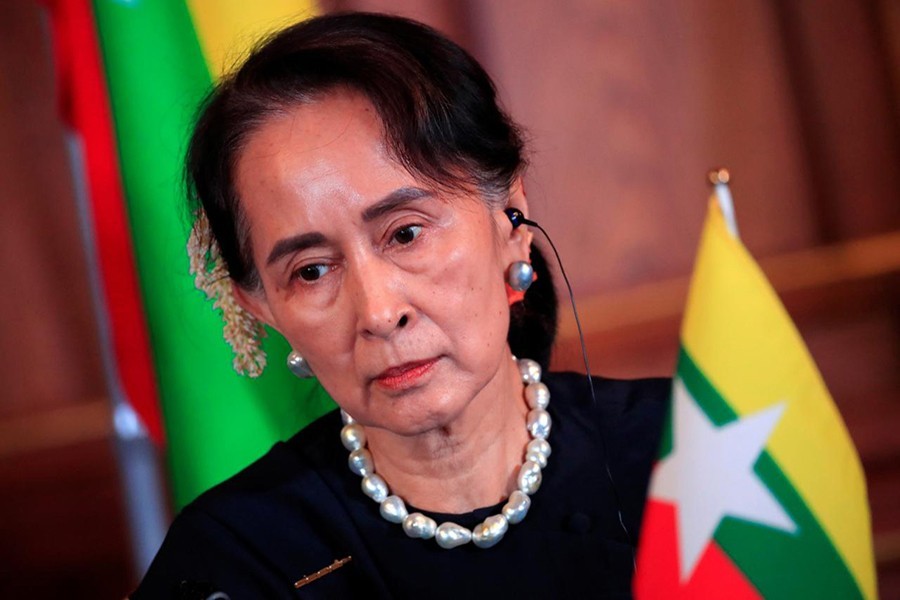A UN human rights expert has implored Myanmar’s civilian leader Aung San Suu Kyi to ‘feel with her heart before it is too late’, saying that even if Rohingyas wished to return they have little to go back to.
Yanghee Lee, the Special Rapporteur on the situation of human rights in Myanmar, told the Human Rights Council on Tuesday the situation in Myanmar was of extreme concern, and was not what she and others had hoped to see nearly four years after the election of the National League for Democracy.
“I’d like to ask the State Counsellor if the Myanmar that exists today is what she had truly aspired to bring about throughout the decades of her relentless fight for a free and democratic Myanmar? I implore you Madame State Counsellor to open your eyes, listen, feel with your heart, and please use your moral authority, before it is too late,” she said.
Despite international condemnation, Lee said Myanmar had done nothing to dismantle the system of violence and persecution against Rohingya, and that the Rohingya who remain in Rakhine live in the same dire circumstances that they did prior to the events of August 2017.
“They are denied citizenship and recognition, face regular violence (including in the context of the ongoing conflict between the Arakan Army and the Tatmadaw), are unable to move freely and have little access to food, healthcare, education, livelihoods and services,” she said.
“Myanmar claims to have done what is necessary for the repatriation to be successful, and continues to blame Bangladesh for any delay,” she said. “However, information I have leads me to believe that the contrary is true.”
Lee noted that satellite imagery showed the development of 34 camps, but said their precise purpose was unclear. She said they may be intended to detain the remaining Rohingya population and those who decide to return.
She said satellite imagery shows the extent of development in northern Rakhine, including six military bases that had been built on the site of destroyed Rohingya villages, UNB reported.
Of the 392 villages that were destroyed, there has been no attempt to reconstruct 320 of them, with 40 percent of villages having been completely razed to the ground.
“Some of that demolition occurred in 2018 and some even in 2019, and all of this is completely antithetical to the claim that Myanmar is ready to receive the refugees. I further note that under Myanmar’s land laws, burned land reverts to Government ownership. In this situation, even if the refugees wished to return to Myanmar, what have they got to go back to?”
Lee added: “My belief is unwavering that accountability is necessary for the country as a whole, as well as being key to successful repatriation: it will bring about an end to the military’s violence against ethnic minorities in Myanmar and the possibility that the Rohingya could live safely in Rakhine.”
The Special Rapporteur also expressed concern about conflict between the Tatmadaw and the Arakan Army, and accusations of indiscriminate use of heavy artillery fire, gunfire and landmines in civilian areas and civilians were killed as a result.
She said in August the conflict in northern Shan worsened after coordinated attacks by the Myanmar National Democratic Alliance Army, the Ta’ang National Liberation Army and the Arakan Army, known as the Three Brotherly Alliance.
The attacks sparked intense fighting between the Tatmadaw and the ethnic armed organisations across inhabited areas and along main roads in northern Shan, according to a media release issued from Geneva.
“Weeks of fighting were waged with disregard for the safety, welfare and rights of civilians.”
Targeted and indiscriminate use of heavy artillery fire as well as landmines reportedly caused at least 17 civilian deaths and temporarily displaced an estimated 8,000 people in northern Shan, 1,600 of them remain displaced now.


